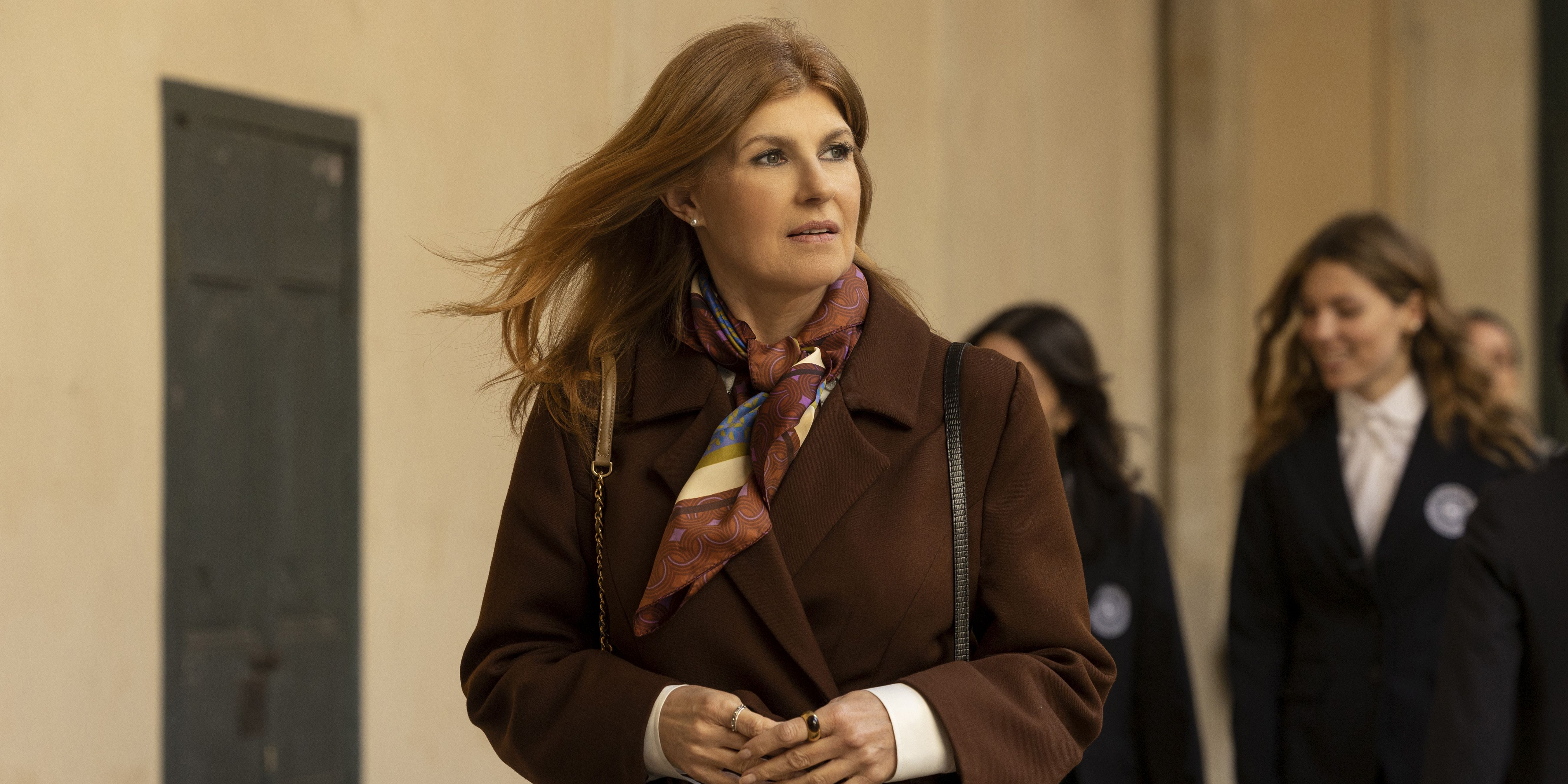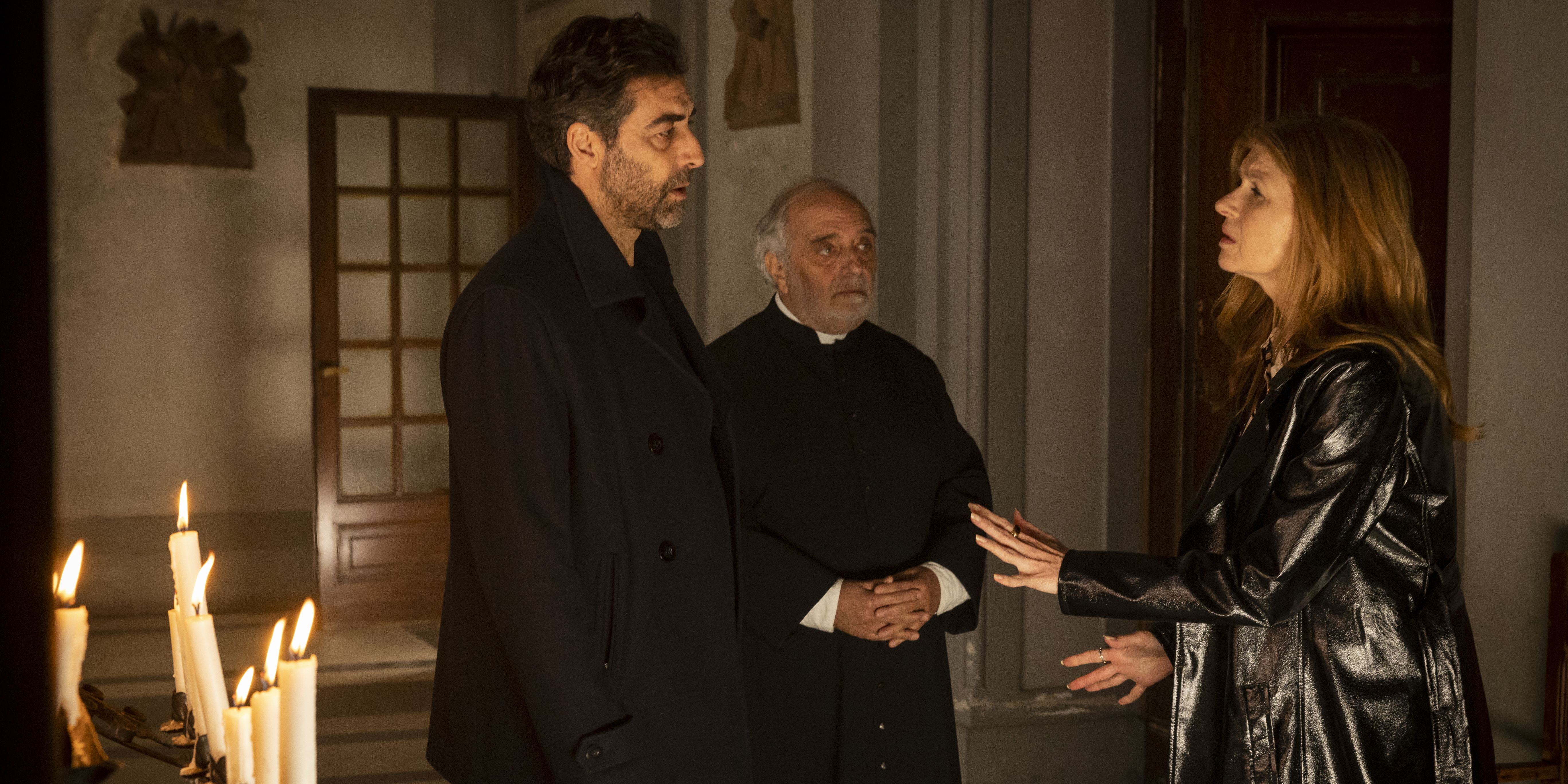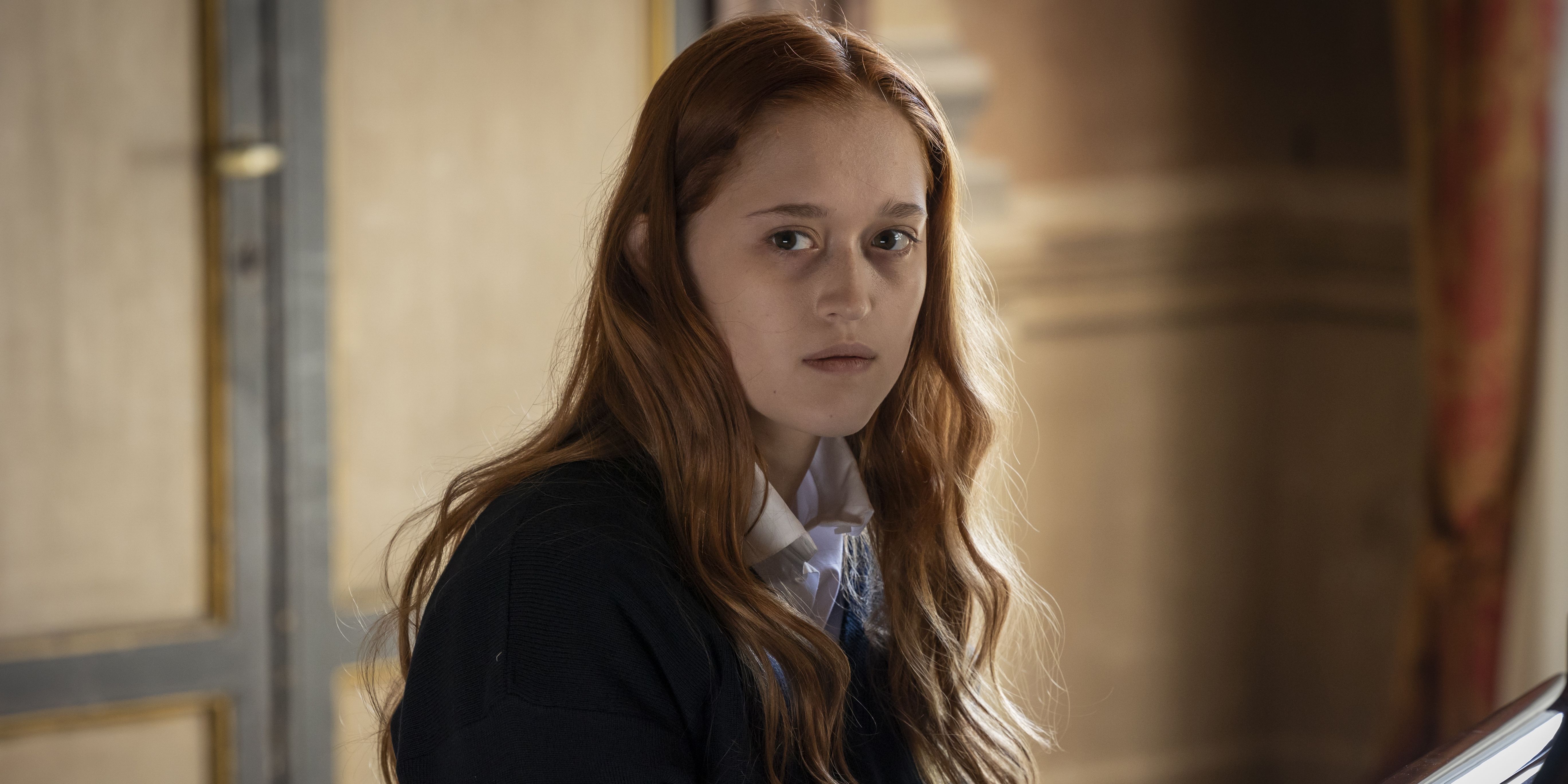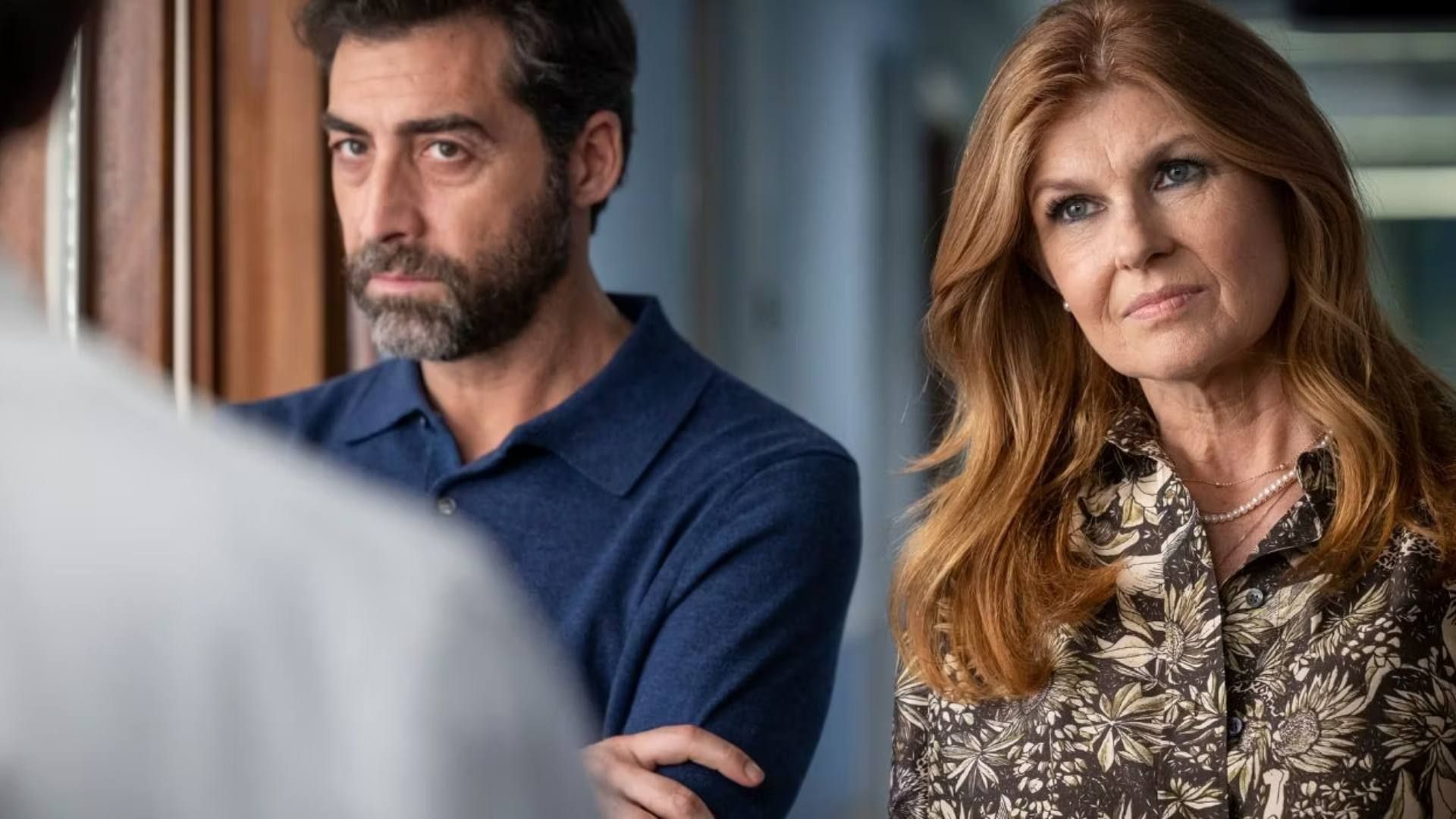BAFTA-nominated producer Robert Salerno is finally stepping into the director’s chair with the horror-thriller, Here After. Having been in the industry since 1996’s Sling Blade, Salerno has been on the producing side for a variety of hits throughout his career, including the Amy Adams and Jake Gyllenhaal-led Nocturnal Animals and Charlie Kaufman’s I’m Thinking of Ending Things. Salerno was also one of the producers behind Paramount’s hit new horror franchise, Smile, and its upcoming sequel, Smile 2.
Salerno’s feature directorial debut, Here After, follows Claire Hiller on a series of ups and downs. She is overjoyed when her daughter, Robin, is miraculously revived after a fatal accident. However, her relief soon turns to dread as she starts to suspect that something dark has followed Robin back from the brink of death, putting her in a race against time to figure out the root of these events and how to save her daughter for good.
Nashville alum Connie Britton leads the ensemble Here After cast as Claire alongside Freya Hannan-Mills as Robin, Giovanni Cirfiera, Tommaso Basili, Alessandro Bressanello, Syama Rayner, Babetida Sadjo, Andrea Bruschi, Alessandro Riceci and Laura Anzani. Packed full of heartbreaking family drama and chilling supernatural terror, Salerno’s movie proves to be an impressive directorial debut.
In anticipation of the movie’s release, Screen Rant interviewed Robert Salerno about bringing such a heavy topic to the screen in Here After. The director discusses the challenges he came across while filming, including a short shooting schedule and being in a foreign country, and also details how Britton’s performance is so incredible that he called cut a moment too soon as it was getting too real for him.
Salerno Had A Real-Life Scare That Helped Inspire His Work On Here After
Screen Rant: As a parent, this movie is especially difficult to watch at times. Are you a parent yourself?
Robert Salerno: I am a parent. I have two kids and, for sure, it was a lot. In some ways, a little bit of the inspiration that I had. I have never had any experience, thank God, anywhere near this, but I did have something when my son was young. I was playing with him and fooling around, and he fractured his arm. I was playing with him during this time, and he was just five years old or something. Nothing intentional, of course, but I just remember the feeling dizzy and feeling once I realized he was actually injured on my watch, with me playing with him, I almost fainted.
I was literally devastated, and it was a bit of an inspiration and I thought that I wanted to find how do you recover from something as devastating as this? And I feel like, by suppressing the guilt, suppressing the feelings and the idea of it, all it does is bubble up into something else. I don’t think it’s possible. And you just need to learn to understand and forgive yourself sometimes. Things aren’t always intentional, and we’re all just human and trying to get through this the best we can. But yes, it is a very intense experience I find from everybody, especially parents, who have viewed this.
I always say having kids is like your heart walking around outside your body.
Robert Salerno: It is, it is like that. And so I don’t know how you would cope with this and deal with this, but it was definitely something that I felt, partly. I wanted to give my shot at putting it out.
Connie Britton Is “Vulnerable and Subtle” In Here After
The film is so well done. It’s suspenseful, emotional, and heavy.
Robert Salerno: Yeah, it is. And even though it is intense, I hope there’s a little bit of support, or hope, in some way, depending on how you feel about it at the end. I really feel like, in my career, I’ve produced some very intense films to begin with. And I was hoping to do something like that in my directorial debut. It is a much different experience to direct something than it is producing it. There’s a more emotional vulnerability as the director of it than there is as the producer of it. It’s much more visceral in some ways. So you do put your heart into it in a different way. I just felt like this was a great transition into directing for me.
I was hopeful that I could tell the story in a dramatic way, playing a little bit with some of the genre elements, but this is not a horror film. There is a thriller and genre element to it, but at the core, I think, performances were really key, as well with this. And especially Connie, she was so vulnerable and subtle and refined in how she did this. And I think that’s pivotal to the character and how it needs to be. She’s, on the outside, a facade that has buried all this and kept this strong, independent single mother, but hopefully, we see some of these cracks when she’s in quieter places – in the bedroom or in her bathroom. A little bit of vulnerability, until we start to unravel what actually happened and the mystery behind it.
Connie Britton is so good in this. She takes the audience on the journey with her, and I was completely blown away at the end. I was crying.
Robert Salerno: Good, good. It was such a — especially for my first film — big bite and undertaking that I took on. This was not a big budget. This was not a long schedule. So I did have to get creative and pack things into this time, but I’m really happy with how that ended. I wanted the audience to have a visceral feeling. It might be intense, and it might be bringing out tears, but when I go to the movies, I want to have an emotional experience, one way or another. I was really trying to accommodate that and make that happen in my film.
Salerno’s Production Experiences “One Thousand Percent” Helped In His Debut
Do you think being a producer in the past helped you with some of the challenges you came across directing Here After?
Robert Salerno: One thousand percent. I started my career thinking I wanted to be an actor when I was right out of school and I, in some ways, kind of stumbled into producing. I don’t know that I was the best actor and I stumbled into producing. But I produced for amazing actor-directors like Billy Bob Thornton. Al Pacino I produced for, who was an actor-director of this movie, Chinese Coffee. John Turturro. There’s a lot of actor-directors that I produced for, and I was given this almost film school from a very young age, in my early twenties, of producing for these iconic people. I think it really informed a lot of what I was doing and how I wanted to do it.
So there was a transition happening, I think. It probably stems a little bit from my passion and love for actors and being an actor, and going into working with these actor-directors and then auteur filmmakers for the rest of my career. I wanted to direct and do what I’ve just achieved here. But the years of experience producing creatively, figuring out how to make the story work and having 25 days to shoot something so immense with cars and emotionality was intense. I also did it in a foreign country with myself and Connie as the only American, English as the first-language speaking people. The rest were all foreigners. So it was a definite intensity. And I, with the help of Connie and my actors, was able to pivot and rethink things on the fly and in the moment that I don’t necessarily believe, the first time filmmakers that I’ve worked with, at least, have that ability, at least in their first film. That came from 20 years of experience on major movies with major talent to accomplish all that.
Salerno Once Called Cut Too Early Because Filming Was So Intense
Before we wrap, I want to talk about something, without spoilers, there is a scene that is like a dream sequence. Can you talk about shooting that, because it is beautiful?
Robert Salerno: Thank you very much. I really appreciate that. It was something that initially was scripted taking place all underwater. Part of it was my rethinking that the emotionality of what I needed to tell in that place just didn’t feel like it would make sense, or I could do it the same justice. I also realized, with a 25-day schedule, you just don’t have the time to do all this underwater tank work that we even did do. So that was conceived with many conversations with my DP and my production designer of figuring out, “What do we do? How can we achieve this?” That’s where we created this world, this netherworld basically, of this vastness and put it together that way. That enabled me to, I think, let the actors perform and, especially, Connie and her daughter.
All of that was just very intense and emotional for all of us at the time. There were times, I don’t want to spoil anything, but there were times in Connie’s performance that I thought were so real that I got scared. I’m by the monitor, and I’m watching everything, and I was nervous. Everything was totally safe, but she did such a brilliant performance that I had tears in my eyes and was even calling cut maybe a second too soon because I was petrified that, Oh my God, am I killing her? Everything was fine and safe, and there was nothing in danger, but her performance was that good that I was really concerned that she might be in danger.
About Here After
Claire is overjoyed when her daughter, Robin, is miraculously revived after a fatal accident. However, her relief soon turns to dread as she starts to suspect that something dark has followed Robin back from the brink of death.
Check out our other Here After interview with Connie Britton!
Here After comes to theaters, and releases on digital, on September 13.
Source: Screen Rant Plus



